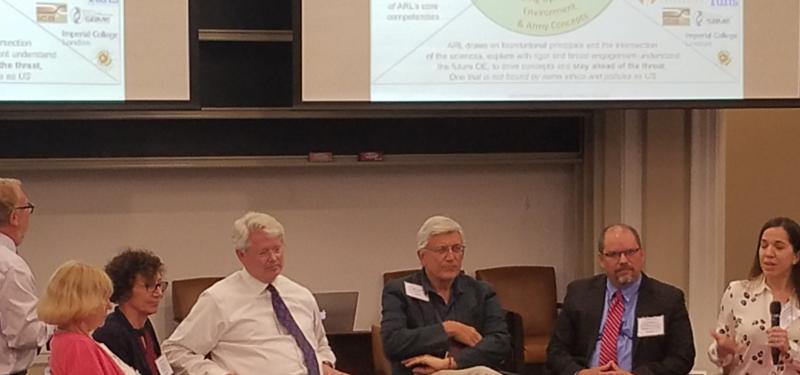
On June 7, 2019, the University of Virginia hosted the first Mid-Atlantic Synthetic Biology Symposium. SynBio@UVA hosted the symposium and invited guests and speakers from academic institutions, research and development facilities, and government agencies. The aim of the symposium was to gather like-minded and interested people to discuss the growing field of synthetic biology and to consider how to position entities in the mid-Atlantic region to take advantage of industry growth.
Panel participants came from the University of Virginia, William & Mary, Virginia Tech, University of Maryland, North Carolina State, George Mason, Virginia Commonwealth University, and Georgia Tech. From industry, speakers represented AgroSpheres (local start-up), Virginia Bio, and the Institute for Advanced Learning and Research. Additionally, there were representatives from the National Science Foundation, Northrop Grumman, and the Army Research Laboratory discussing best practices for collaborations among academia, industry, and governmental agencies.
Pamela Silver, from Harvard’s Wyss Institute for Biologically Inspired Engineering, provided the keynote address regarding how synthetic biology can be used to address problems faced by society. Synthetic biology can be used to address issues in health and sustainability to make products greener, cheaper, and more accessible. About 120 people joined us for talks and presentations throughout the day. We wrapped up with a poster session, where students and businesses presented posters on their work to attendees.
The co-directors of SynBio@UVA are now working with interested parties to form a SynBio Advisory Committee to continue the momentum from the symposium, discuss collaboration possibilities, and to consider ways to access funding and market opportunities for the synthetic biology community. Increased access to resources may be dependent on helping the scientific and lay communities better understand synthetic biology (it is a broad category), its uses and impacts, and how synthetic biology technologies can increase the effectiveness of existing technologies.
